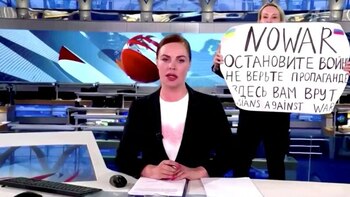
Fake American laboratories for biological warfare. False killer birds. Ukrainian “Nazis” everywhere. The Russian television propaganda machine has reached such intensity amid President Vladimir Putin's war against Ukraine that a small — but previously unthinkable — crack in Moscow's state-owned news giant opened earlier this week with an on-air protest.
For three weeks, Russia's so-called “federal channels” — state-controlled news networks that offer different views of the same thing and are funded by the Kremlin — have been serving Putin's turn in a war his government called a “special military operation.”
The message is this: the invasion was a necessary measure that was taken with the aim of saving the population of the Moscow-backed separatist regions of eastern Ukraine, and to free the rest of the nation from the “Nazi” and illegitimate authorities armed by reckless Americans. In addition, the Russian military only attacks Ukrainian military targets while their opponents kill civilians.
To observe is to look through the mirror of the Kremlin. It is also a lesson in why Putin feels confident that his internal apparatus, armed with a combination of propaganda and repression, can withstand the backlash of a war that U.S. officials say has already left thousands of Russian soldiers dead since the February 24 invasion.
Anton Shirikov, a graduate student at the University of Wisconsin, Madison, who studies Russian state propaganda, said that piercing the propaganda bubble may seem impossible. Shirikov compared it to telling an ardent Donald Trump supporter and voracious consumer of the right-wing American media that President Joe Biden won the 2020 election cleanly.
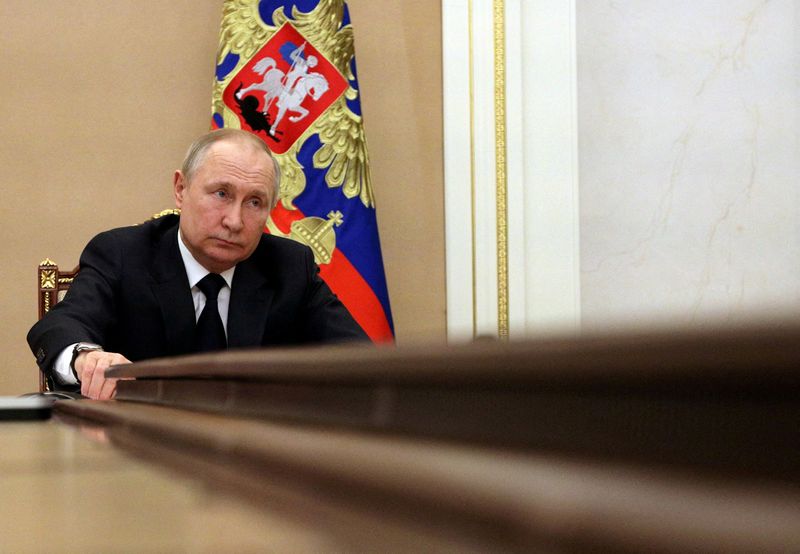
“People who genuinely support Putin and Putin's government are really unlikely to believe stories that portray Ukraine positively and the same for the West,” Shirikov said. “They have this filter that even if they hear this story from their family or friends, they just reject it.”
At the same time as war propaganda intensifies, the Kremlin has suppressed the last vestiges of the Russian free press, shutting down the radio station Echo of Moscow and passing a new restrictive law that threatens years in prison for those who publish “forgeries” about the “special military operation”. The law caused the closure of Russian independent television Lluvia and caused the departure of many independent and foreign journalists from Russia from the country.
Digitally savvy Russians can still access independent news using YouTube, the Telegram messaging app or virtual private networks, better known as VPNs. But older Russians tend to rely more on television and constitute the main audience of Russia's state news apparatus.
The State information bubble was briefly pierced when Marina Ovsyannikova, an employee of the iconic Russian State-controlled Channel One, broke into the live news on Monday night to demand an end to the war and put up a sign reading, among other things, “Here they are lying to you.”
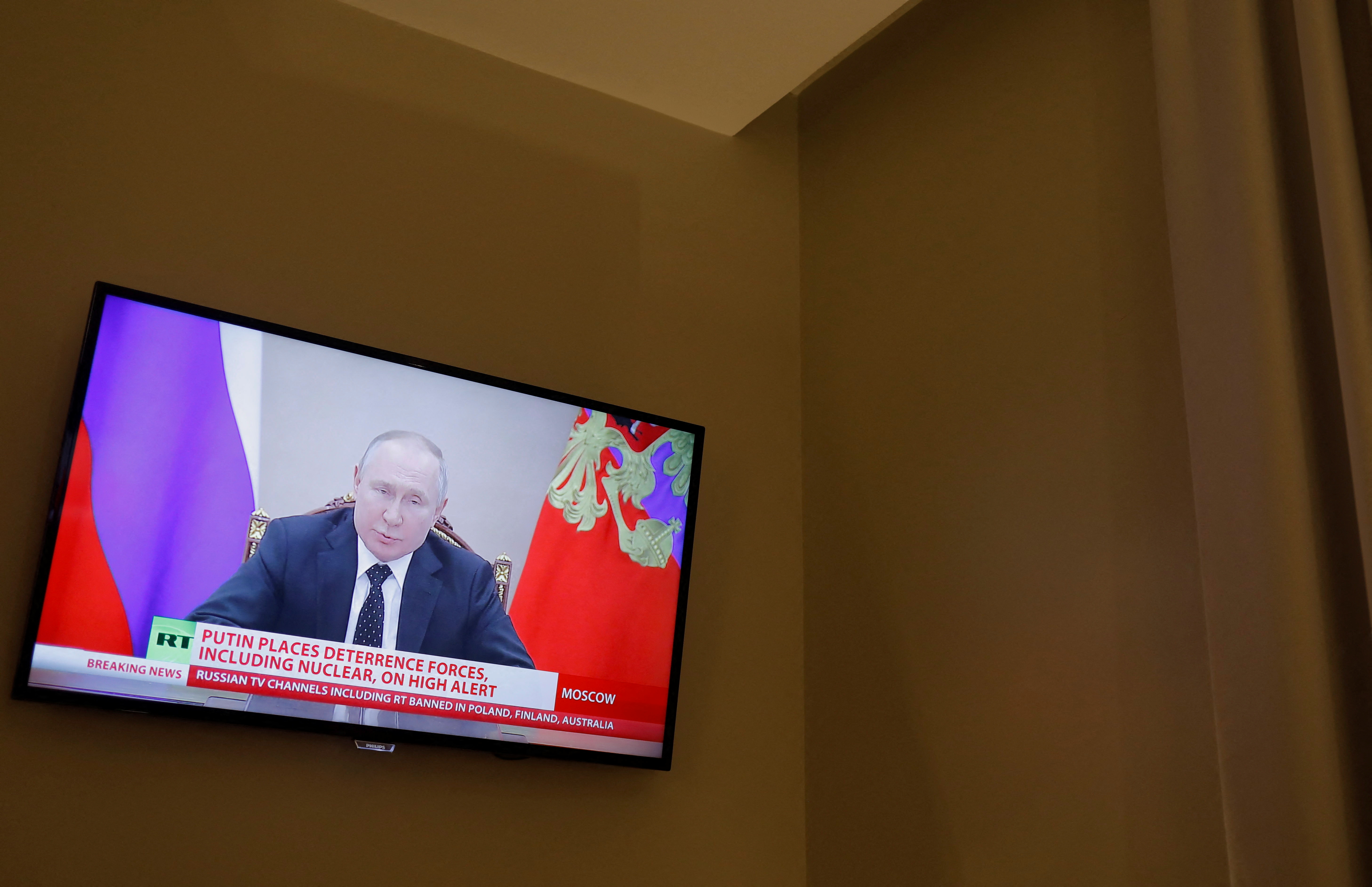
Soon after, independent Russian media outlet Meduza confirmed that one of Channel One's star correspondents, Zhanna Agalakova, had also resigned in protest of the war.
Despite these fissures, and the possibility of other backstage turbulence, Russian state propaganda has continued to flow unabated, persuading millions of Russians to support a large-scale war in which no one is ever mentioned who died at the hands of the Russian military. Information about Russian military casualties is practically non-existent and is limited to official statistics from the Ministry of Defense, which drastically underestimate the losses.
Gleb Pavlovsky, Putin's former political strategist, said that government-controlled news channels have become a critical branch of Russian state power, as important as the Attorney General's Office or the Interior Ministry, albeit outside the Russian Constitution. They “provide everyone with a set of symbols of loyalty,” Pavlovsky said.
“We see that it is powerful enough to retain that support. It works and gets results,” Pavlovsky added. “Of course, without it, there would be no such results.”
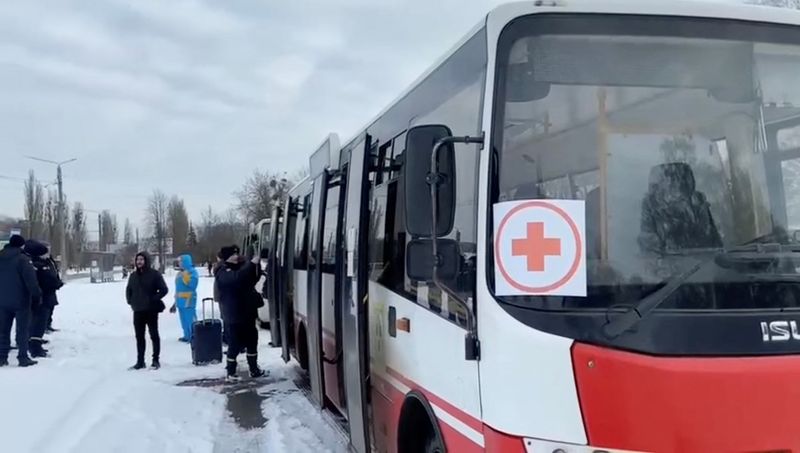
Feature packages and talk shows, some of which have been broadcast overtime since the beginning of the war, have been mainly divided into two thematic categories since the start of the war.
The first presents Russian military operations as a necessary measure to subdue the savage Ukrainian “Nazis” who are indiscriminately killing civilians in a country that exists only in a dubious way. The second emphasizes how the United States and its European allies, through sanctions and other retributive measures, seek to destroy Russia and must be countered with patriotic challenge and self-reliance.
Dmitry Kiselyov, the Russian propagandist who presents “News of the Week” on Rossiya-1, began his program on Sunday by saying that Kiev “will be forced to answer for war crimes and genocide,” and warned of the existence of “concentration camps and mass executions.”
He then quickly moved to a video in which Fox News host Tucker Carlson credited a false argument of Russian state propaganda that the United States operates secret biological weapons laboratories in Ukraine, one of the countless causes that Russia has promoted in recent days.
Russian propaganda has for years pointed to a Department of Defense program initiated after the Cold War to ensure the safety of foreign laboratories and identify potential biological threats. Ukraine is one of the 27 countries in which the program operates.
During Sunday's program, Kiselyov stated that the United States was trying to “obtain the genetic code of the Russians” in those Ukrainian laboratories, exclaiming that “this alone confirms that Americans think of us as one people.” He told listeners that Americans were trying to figure out which chemicals would be most effective in tackling Russian genetic weaknesses.
The two speeches that Putin made the week the war began gave long rounds to history. State news programs have followed suit, broadcasting one segment after another in which the borders of modern Ukraine and its validity as a nation are questioned.
State news programs have aired the map of a self-declared Donetsk-Krivoy Rog Soviet Republic, which only existed theoretically for a month in 1918, to imply that the borders of modern Ukraine are a fiction and that the eastern part of the country belongs to Russia. Beyond questioning borders, Russian state channels have openly challenged the notion of an independent Ukraine.
“When we had a tsar, there was no Ukraine,” Kiselyov said on his Sunday program.
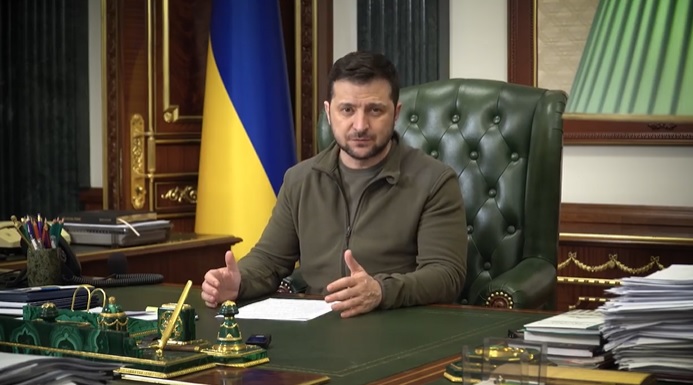
At the end of the program, Kiselyov devoted a segment to stating that the images of the Russian attack on a maternity hospital in the Ukrainian city of Mariupol were “gross and cheap” falsehoods. In addition, it led a military expert to say that it was not clear whether one of the pregnant women photographed by the Associated Press after the attack “was voluntarily participating in this provocation or was forced”.
The Russian forces, for their part, are presented as liberators of good heart. On Monday's evening news Rossiya-1, a Russian special forces soldier was shown shaking hands with a local man after “liberating” his village and another Russian soldier patting a crying woman on the shoulder. At the end of Kiselyov's program, three Chechen soldiers - who are part of the Russian military forces - were shown giving medicines to a man in Ukraine and explaining how to take them.
At the same time, Russian state news has shown civilians allegedly maimed by Ukrainian forces. Earlier this week, state news broadcasts showed incredibly graphic images of civilians killed and maimed in central Donetsk.
Russia and its separatist representatives attributed the attack to a Ukrainian Tochka-U missile that they claimed was intercepted, but Ukraine said it was a Russian missile. Ruslan Leviev, founder of a Russian analytical group that uses open-source data to track military activities, said photos of the incident suggest that the missile flew from Russian-controlled territory and was not intercepted.
Shortly after the Russian invasion, state news channels echoed false comments by Russian officials trying to portray Ukrainian President Volodymir Zelensky as if he had fled Kiev. More recently, state broadcasts have portrayed Zelensky as unhinged, in contrast to his status as a hero who reigns in much of the West.
As the United States and its European allies have intensified sanctions and economic restrictions on Russia, state news commentators and reporters have tried to show how bad things are in the West and also to dismiss the economic threat it poses to Russia.
Russian state news broadcasts have regularly broadcast segments about the panic of Americans over rising gasoline prices.
One of those segments included, as proof of panic, the Instagram video of a comedian from Philadelphia, forwarded by rapper 50 Cent, in which the parody actor cries telling Biden that he now has to “walk these streets because the price of gas is too high.”
Margarita Simonyan, director of the state-controlled foreign-language television station, appeared on the popular state news talk show “Sunday Night with Vladimir Solovyov” and told Russians that regardless of what they think of the “military operation” in Ukraine, they must “maintain stability” in order to prevent a repeat of what happened in 1917 or 1991, when the Russian Revolution took place and the Soviet Union collapsed, respectively.
Simonyan, in response to Western sanctions, said that the country will live without $1,000 bras and announced the beginning of Russia's “economic freedom”.
“It may be harder or softer, but one way or another, all TV channels broadcast the same point of view,” said Ilya Shepelin, a journalist who analyzed Russian state propaganda for a program on the now-closed Russian independent channel TV Rain. “It's very difficult for a person to get out of it, because if he is surrounded by a unified information wall, it's hard even to believe that in Kiev they can be shelling civilian houses, that everything may not be so simple.”
(c) 2022, The Washington Post
Keep reading:
Últimas Noticias
Debanhi Escobar: they secured the motel where she was found lifeless in a cistern
Members of the Specialized Prosecutor's Office in Nuevo León secured the Nueva Castilla Motel as part of the investigations into the case

The oldest person in the world died at the age of 119
Kane Tanaka lived in Japan. She was born six months earlier than George Orwell, the same year that the Wright brothers first flew, and Marie Curie became the first woman to win a Nobel Prize

Macabre find in CDMX: they left a body bagged and tied in a taxi
The body was left in the back seats of the car. It was covered with black bags and tied with industrial tape
The eagles of America will face Manchester City in a duel of legends. Here are the details
The top Mexican football champion will play a match with Pep Guardiola's squad in the Lone Star Cup

Why is it good to bring dogs out to know the world when they are puppies
A so-called protection against the spread of diseases threatens the integral development of dogs




